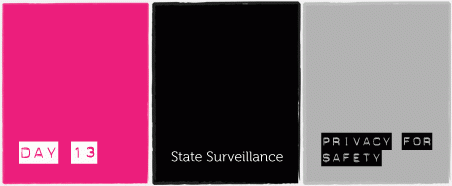
Article 12 of the Universal Declaration of Human Rights guarantees our right to privacy. The state has a duty to protect and recognise our right to privacy, and this extends to all aspects of our lives, including the digital realm. But governments increasingly insist that we must trade privacy for safety. They say that in order to keep us safe, they must monitor what we do, who we connect with, what we say and so on. They claim to protect our safety rather than our privacy, as though the two are mutually exclusive.
Those of us who have experienced gender-based violence or worked with survivors, however, know the opposite to be true. Privacy is critical to our safety. It’s often the very thing that keeps us alive. Privacy allows us to access life-saving information and take steps to keep violence out of our lives. It allows us to make our own decisions without interference.
Monitoring us - violating our privacy - is what abusers do. The state’s protectionist claims that require us to trade our privacy for safety stem from the same patriarchal ideas that enable gender-based violence.
In response to recent revelations about the US’s massive surveillance, the Third Committee of the UN General Assembly adopted an important resolution reaffirming our human right to privacy. “The right to privacy in the digital age” condemns state monitoring and is expected to pass easily when it comes up for vote later this month.*
This resolution is a significant move in taking back our privacy and in connecting women’s rights to digital spaces. In affirming that the rights we have offline must be extended online, the resolution relates directly to ICT-related violence against women and women’s digital communication rights. Help us spread the word!
*The resolution was adopted on 18 Dec 2013, can now be downloaded here.
TAKE ACTION
SHARE KNOWLEDGE
Write a press release, letter to the editor or blog post announcing the UN resolution and explaining its importance for women’s rights. Send us a copy at ideas@takebackthetech.net or link your blog to our site. Let us know how people respond!
Reject protectionist claims. Refuse to trade privacy for safety. Demand your right to privacy online and offline!
Issue
- Log in to post comments
